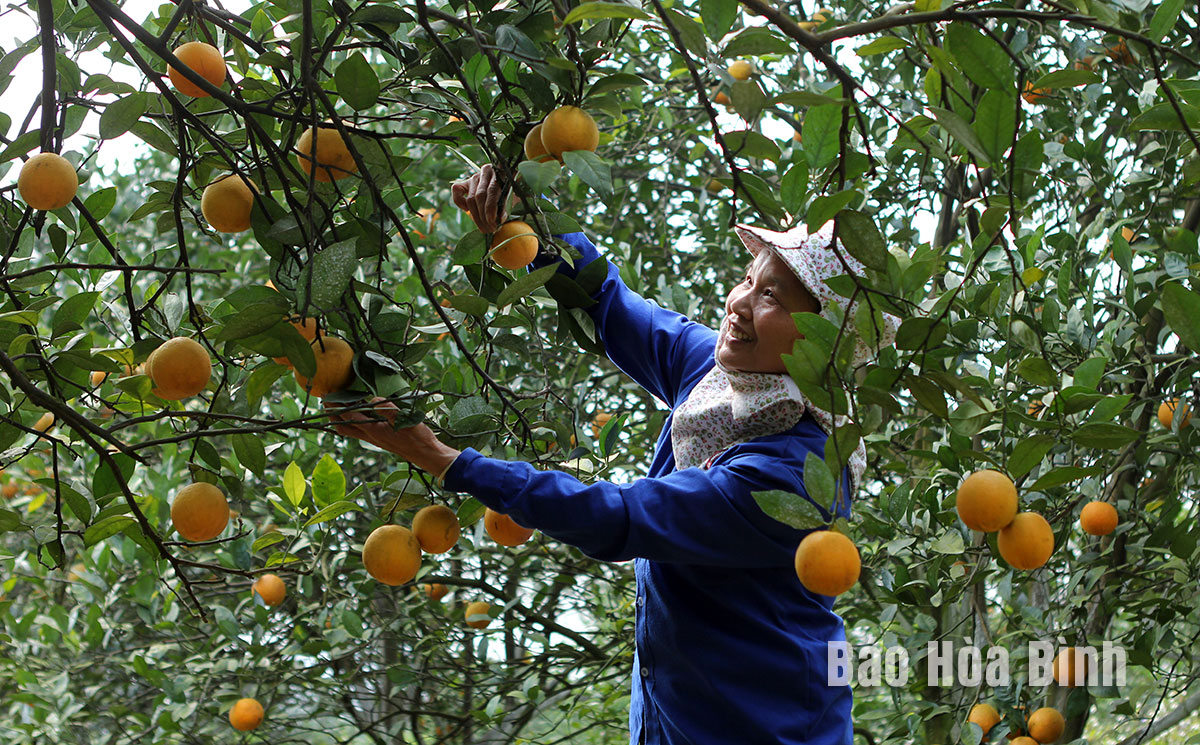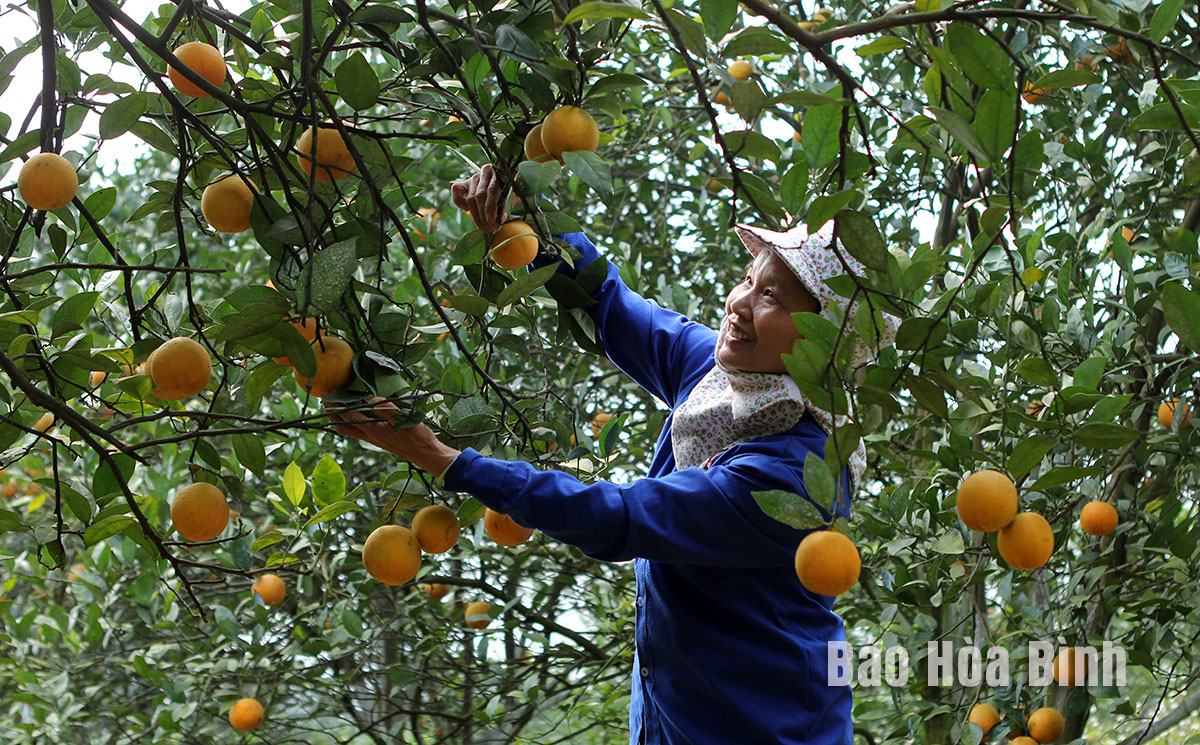
Fully tapping the advantages of climate, land, and farming tradition, Cao Phong district has promoted the development of citrus fruit growing areas into concentrated production ones, helping increase production value and bringing stable incomes to many households in the locality.
Statistics show that Cao Phong district has
over 1,740 ha of citrus fruit trees, including 1,357 ha of orange, 73 ha of
tangerine, 56.6 ha of lemon, and over 257 ha of pomelo. It is home to 179
hectares of orange cultivated in accordance with VietGAP standards, producing
over 20,000 tonnes in the 2023-2024 crop.
Cao Phong district is home to 179
hectares of orange cultivated in accordance with VietGAP standards.
All communes and the town in the district have
areas dedicated to citrus cultivation, mainly in Hop Phong, Tay Phong, Bac
Phong, and Thu Phong communes, and Cao Phong town.
Director of the Office of Agriculture and Rural
Development of Cao Phong district Bui Van Dan stated that to improve the value,
yield, and quality of citrus fruits, local farmers are focusing on applying
scientific and technological advancements in production and intensifying
investment to turn fruit cultivation into a key sector in the local
agricultural commodity structure.
Apart from maintaining the stable cultivation
areas, the office has advised the district People's Committee to instruct
localities to concentrate on intensive cultivation and improving the quality of
planting areas.
Localities have promoted citrus cultivation in
line with VietGAP and organic standards to turn out high-quality and safe
products that meet the increasing demand of domestic and export markets. In early 2023, the district exported nearly 7
tonnes of Cao Phong orange to the UK.
Dan said to sustainably develop citrus fruit
planting areas, Hoa Binh province has approved a project on replanting citrus
fruit trees for the 2021-2025 period with a vision to 2030.
To meet the domestic consumption and export
demand, the province will focus on producing specialty varieties with high
competitive advantages in each locality, expanding the application of good
agricultural production practices, towards 100% of products from concentrated
areas ensuring food safety standards, having growing area codes and
traceability.
Attention will be paid to promoting the
development of citrus fruit production and processing industry; and encouraging
businesses, especially large ones, to invest and link with farmers in the
citrus fruit value chain; and accelerating the formation of regional linkages
in producing, selling and exporting ci
trus fruit
products.
According to data from the Hoa Binh Provincial Party Committee, the industrial production index for the first six months of 2025 is estimated to have increased by 20% compared to the same period last year. This marks the highest year-on-year growth rate for this period since 2020.
In the first six months of 2025, Hoa Binh province’s export turnover was estimated at 1.145 billion USD, marking an 18.11% increase compared to the same period in 2024. Import turnover was estimated at $ 804 million, a 17.15% increase, which helped the province maintain a positive trade balance.
The lives of the ethnic minority farmers in Tan Lac district have gradually improved thanks to the new directions in agricultural production. This is a testament to the collective strength fostered through the professional associations and groups implemented by various levels of the district’s Farmers’ Union.
With the motto the "product quality comes first,” after nearly one year of establishment and operation, Muong village’s Clean Food Agricultural and Commercial Cooperative, located in Cau Hamlet, Hung Son Commune (Kim Boi district), has launched reputable, high-quality agricultural products to the market that are well-received by consumers. The products such as Muong village’s pork sausage, salt-cured chicken, and salt-cured pork hocks have gradually carved out a place in the market and they are on the path to obtaining the OCOP certification.
In the past, the phrase "bumper harvest, rock-bottom prices" was a familiar refrain for Vietnamese farmers engaged in fragmented, small-scale agriculture. But today, a new spirit is emerging across rural areas of Hoa Binh province - one of collaboration, organisation, and collective economic models that provide a stable foundation for production.
Maintaining growing area codes and packing facility codes in accordance with regulations is a mandatory requirement for agricultural products to be eligible for export. Recently, the Department of Agriculture and Environment of Hoa Binh province has intensified technical supervision of designated farming areas and packing facilities to safeguard the "green passport" that enables its products to access international markets.



